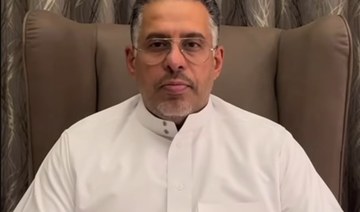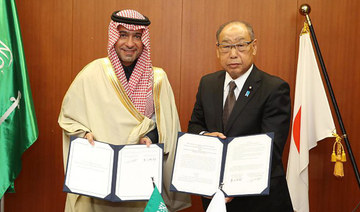RIYADH: Ministers of tourism from the Gulf Cooperation Council states held their third meeting on Wednesday in Riyadh under the chairmanship of Prince Sultan bin Salman, president of the Saudi Commission for Tourism and National Heritage (SCTNH). Also participating was GCC Secretary-General Abdul Latif Al Zayani.
Prince Sultan delivered the opening speech in which he welcomed the heads of delegations participating in the meeting on behalf of Custodian of the Two Holy Mosques King Salman.
Prince Sultan said that GCC countries are blessed with security, stability and economic development in a region engulfed in conflicts due to the statesmanship of GCC rulers, adding that this state of affairs makes it imperative on all to join efforts and work on maintaining and promoting this stability and bringing together Gulf citizens who have a shared history and are linked by common cultural characteristics and social components.
He added that the tourism sector no longer means entertainment only, but involves other aspects, like economy, social development and security, and this requires that GCC states invest significantly and pool together resources to achieve the aspired economic returns and create jobs for young people.
Prince Sultan said interface tourism and integration among GCC countries should be a priority for tourism ministers. He stressed the importance of developing interface tourism and forging closer links among GCC nationals, as well as developing effective and genuine partnerships with the private sector to secure investment in tourism sector, which in turn will contribute to the employment of Gulf citizens and bolster the economy.
Qatar's Minister of Economy and Commerce Sheikh Ahmed bin Jassim Al-Thani said in his speech: "The tourism sector is one of the main economic instruments that could play a pivotal role in strengthening the march of the GCC countries towards the diversification of their economies and in supporting their ability to respond to the fluctuations of oil price and their repercussions."
He noted that the global economic realities made it necessary for GCC countries to find a new economic model and accelerate the development of non-oil sectors, particularly tourism, as well as to take measures which ensure that this important sector contributes to the overall economic development.
He called on all Gulf states to pool efforts to promote the tourism sector, build a unified Gulf strategy in support of this vital sector and take serious steps to boost tourism among the states of the region, to ensure achieving the objectives in this sector and to promote the economic and social ties between Gulf people, which, in turn, helps develop tourism with all its auxiliary sectors in the various GCC countries.
Sheikh Ahmed praise the initiative launched by Prince Sultan and called for improving joint work in tourism through creating a Specialized Ministerial Committee, an initiative supported and adopted by Qatar.
The secretary-general of the GCC countries delivered a speech in which he expressed gratitude and appreciation to the SCTNH president for his initiative to hold a joint meeting of ministers of tourism and ministers of culture of the GCC countries, during which participants could discuss visions and ideas for promoting cooperation between these two important sectors of sustainable development.
He highlighted the second annual exhibition of crafts and arts, organized by SCTNH in Saudi Arabia, in which GCC member states participate, wishing the exhibition success, and thanked the tourism ministers of the GCC countries for their unremitting efforts and endeavors to revitalize the tourism sector in the Gulf region.
"The tourism sector in the GCC countries achieved tangible leaps over the past years, represented in increased numbers of historical sites and tourist facilities, as well as leisure hotels and resorts, and recreational cities. This has contributed to a substantial increase in the number of tourists and visitors.
"The GCC region has turned into a favorite tourist destination because of its safe and stable environment, and the sophisticated tourist services, comparable to those of the developed countries," he added.
Al-Zayani pointed out that Gulf citizenship is a reason for pride as it guarantees unrestricted freedom of movement, and this contributed to the increase in the number of travelers among GCC countries, which amounts to about 25 million per year.
He said the population of the Gulf region, including citizens and foreign residents, stands at 57 million people and this can form the driving force for cross-border tourism in the GCC region if thoughtful plans are put in place to attract local tourists and provide better services.
The secretary general highlighted the ambitious and comprehensive vision for joint tourism action among GCC member states submitted by the Saudi Commission for Tourism and National Heritage.
The vision has been enriched by scientific and practical proposals by all member states, aimed at making GCC countries one of the most important tourist destinations in the world.
"Such a vision, once adopted, will represent a quantum leap in the joint work in the field of tourism of GCC member states," concluded Al-Zayani.
Ministers discuss ways to boost Gulf tourism
Ministers discuss ways to boost Gulf tourism
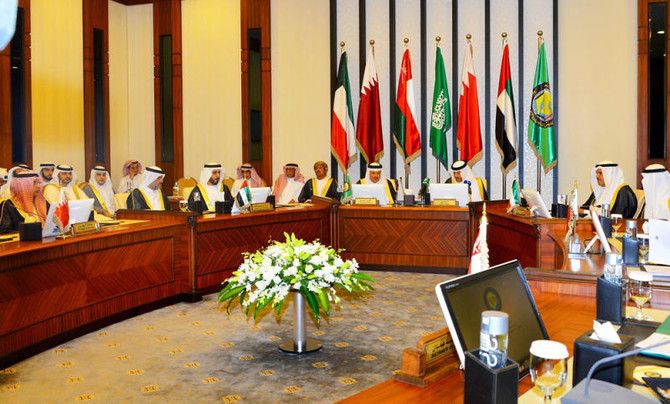
How sustainable tourism can help preserve Saudi Arabia’s iconic desert wildlife

- With desert tourism on the rise, experts say visitors and developers have a responsibility to respect local fauna
- The deserts of Saudi Arabia are home to more than 4,000 animal species, many of them critically endangered
ALULA: Although Saudi Arabia is home to a wealth of ecosystems, from its coastal mangroves and coral reefs to its high-altitude forests and lush oases, the Kingdom is perhaps best known for its deserts.
However, these landscapes, which are fast becoming popular with outdoor adventurers, are home to a remarkable array of animals, which inhabited the region long before the arrival of humans.
Despite the hardiness of these animals, given the harshness of their environment, the encroachment of humans into these pristine habitats is raising concerns among conservationists.

“The rapid growth in tourist flows in recent decades has been accompanied by diversification, both geographically, and in terms of tourism segments or products,” Basmah Al-Mayman, Middle East regional director of the UN Tourism (formerly UN World Tourism Organization), told Arab News.
“Desert destinations have shared in the benefits of this double-diversification process, making it an even more pressing priority to define a sustainable approach to tourism development in desert areas.”
As a Saudi national herself, Al-Mayman recognizes the value of the Kingdom’s precious ecosystems as a source of revenue and national pride. However, she believes the tourism industry, developers, and travelers themselves have a responsibility to act sustainably.
Opinion
This section contains relevant reference points, placed in (Opinion field)
“In the desert, more than anywhere, with destinations still relatively untouched by the adverse effects tourism can bring, sustainability represents a particularly critical challenge,” she said.
“The messages conveyed by UN Tourism are not only preventive in character, but also offer stakeholders at international as well as local levels the advice and tools they need to combat poverty and desertification while enabling tourism to properly play its role as a vehicle for development.”
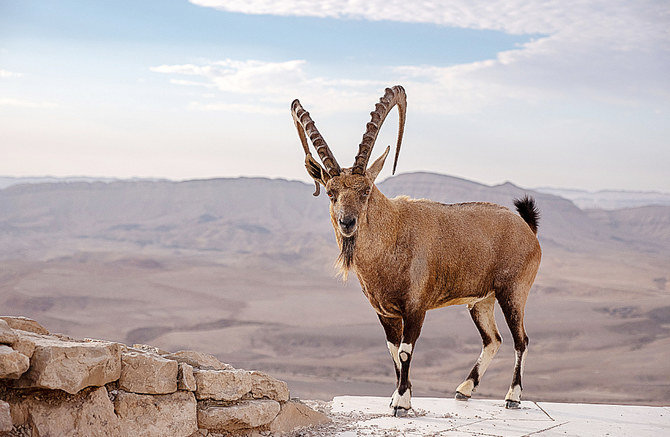
According to UN Tourism, sustainability principles refer to the environmental, economic, and socio-cultural aspects of tourism development. A balance must be established between these dimensions to guarantee its long-term sustainability.
Sustainable tourism should therefore make optimal use of environmental resources that constitute a key element in tourism development, while maintaining essential ecological processes and helping to conserve natural heritage and biodiversity.
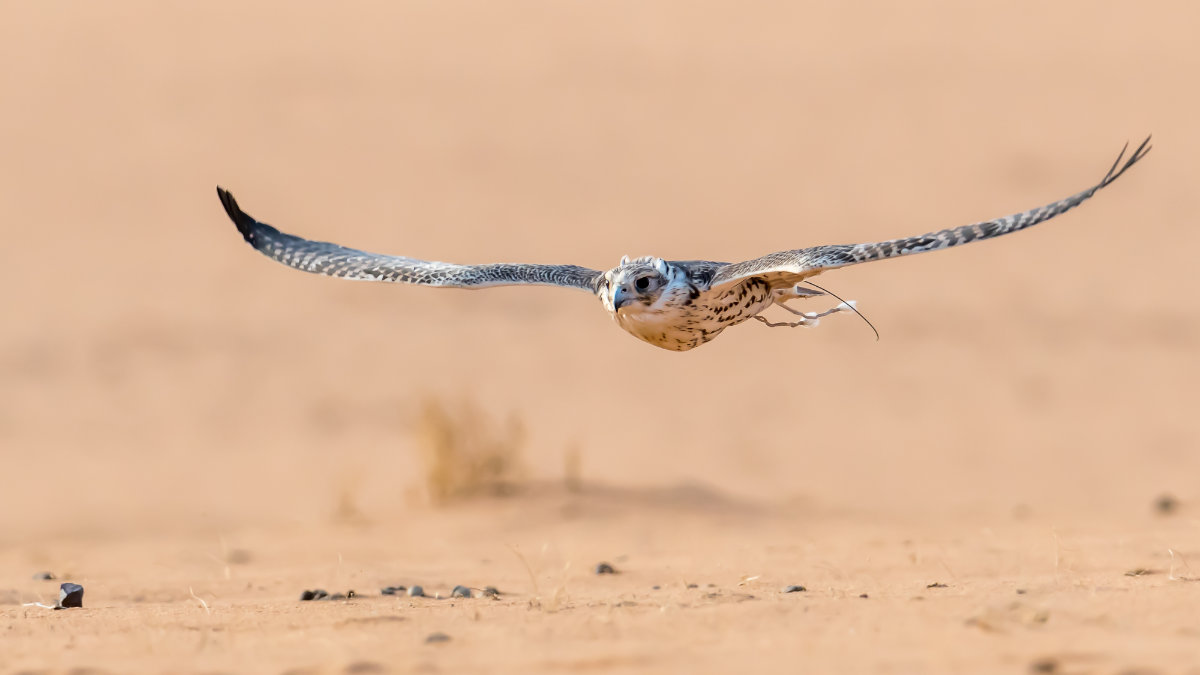
As the largest country in the Middle East, occupying more than 80 percent of the Arabian Peninsula, Saudi Arabia is home to five distinct climatic regions.
These biomes include coastal fog desert, the southwestern savanna foothills, the southwestern montane woodlands, the Arabian Desert, the Nubo-Sindian tropical desert, and areas of semi-desert.

Extensive hunting in the 19th century resulted in the population decline of many of Saudi Arabia’s indigenous animals, including oryx, leopards, and cheetahs. The Kingdom has since imposed bans on poaching and launched breeding programs to help bolster populations.
Other wildlife found in these habitats included striped hyenas, mongoose, baboons, sand cats, and hopping desert rodents known as jerboa. Visitors willing to brave the region’s harsh temperatures may be rewarded with a glimpse of a Nubian ibex, sand gazelles, or a whole array of reptiles.
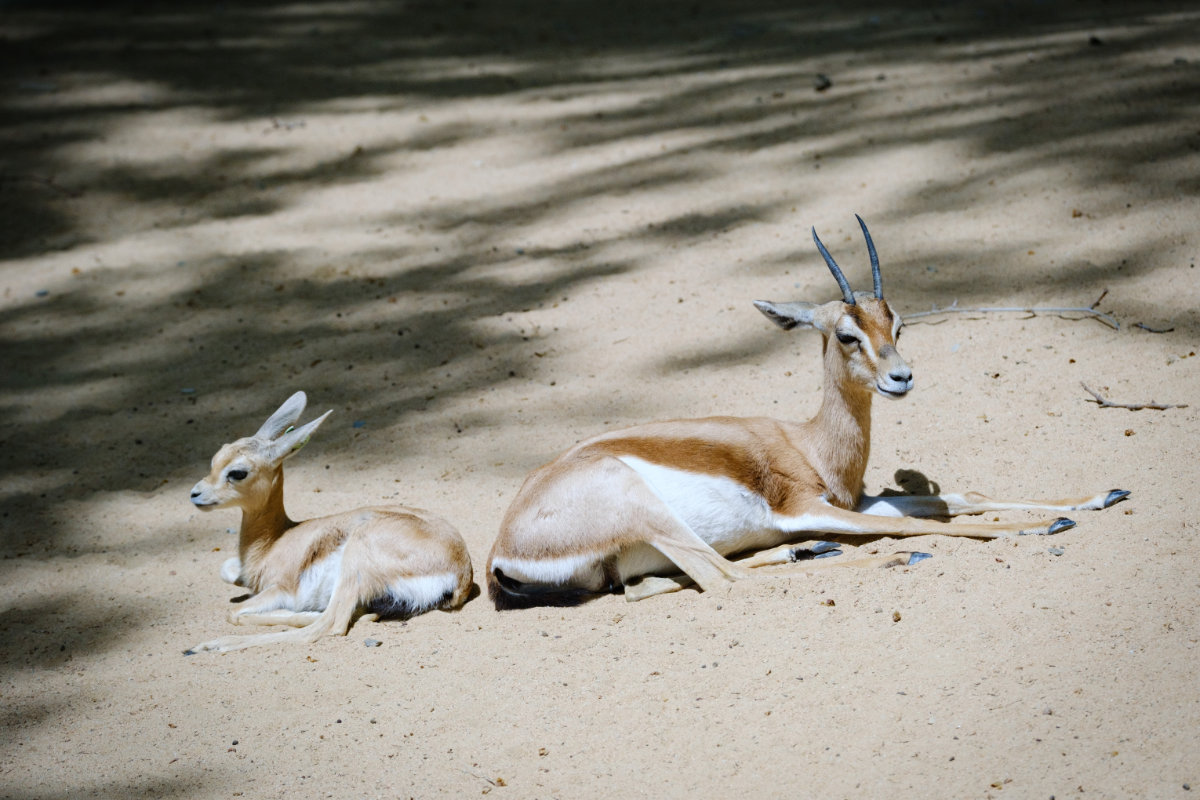
Occupying some 25 percent of Saudi Arabia’s territory, the Rub’ Al-Khali, also known as the Empty Quarter, is anything but what its name might suggest. The world’s biggest sand desert is in fact home to a dizzying array of wildlife.
Likewise, the Kingdom’s scrublands, steppes, mangroves, volcanic fields, palm oases, and mountain ranges are teeming with creatures — nesting, hunting, feeding, and burrowing, many of them out of sight, coming out only in the cool hours of night.
DIDYOU KNOW
• 2024 was designated the Year of the Camel by the UN and Saudi Ministry of Culture.
• AlUla has made great strides in ensuring that desert tourism is eco-friendly.
• UN Tourism has put forth structured targets to support sustainable desert tourism.
• National Center for Wildlife estimates there are 4,481 endangered species in the Kingdom.
No desert animal is perhaps better recognized than the camel. It is because of its iconic status that the UN and Saudi Arabia’s Ministry of Culture has designated 2024 as the “Year of the Camel.”
This year, Saudi Arabia will host several camel-centric events and organize special spaces to educate the public about these much-loved “ships of the desert.”
Just this past week, the second ever AlUla Camel Cup was celebrated in the Kingdom’s ancient northwestern region. The four-day event centered on the animal, which has become synonymous with the country’s identity.

The camel has been the Bedouin’s best friend for centuries, as well as a loyal companion and a lifeline. Even the Prophet Muhammad relied on camels for transportation and as a source of food and fuel.
Camels are not the only animals getting their moment in the limelight. Saudi Arabia’s National Center for Wildlife and the Saudi Green Initiative have been working hard to ensure none of the Kingdom’s fauna is overlooked.
Assigning an animal to be championed during a specific year, month, or day has been instrumental in raising awareness about the wellbeing and conservation of the region’s distinctive species.
In 2022, the Royal Commission for AlUla launched a campaign for the recognition of “International Arabian Leopard Day.” In 2023, the UN General Assembly unanimously designated Feb. 10 as the “International Day of the Arabian Leopard.”
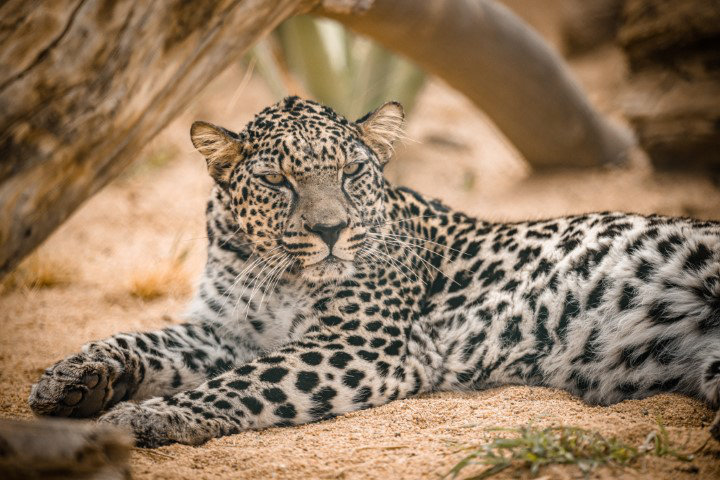
The Arabian leopard once enjoyed a range stretching across a large swathe of the Arabian Peninsula, from southern Jordan to Yemen.
But, after years of human encroachment on its habitat, resulting in the depletion of its natural prey, the International Union for Conservation of Nature listed the big cat as a critically endangered species.
Saudi Arabia has long been at the forefront of animal conservation, with the Imam Abdulaziz bin Mohammad Royal Reserve Development Authority reintroducing more than 220 endangered species into the wild in the Kingdom’s royal reserves over the past five seasons.

Much of this has been done in tandem with sustainable tourism initiatives, designed to protect the Kingdom’s ecosystems, while providing jobs, services, and prosperity to local communities.
For instance, in the ancient deserts of northwest Saudi Arabia, framed by curious rock formations with their dramatic silhouettes, the lush green oasis of AlUla has been continuously occupied by humans since before the 12th century.
Throughout that time, animals have been vital to the area and to the livelihoods of its human residents.
In line with Saudi Vision 2030, the Royal Commission for AlUla has launched an initiative to rehabilitate 65,000 hectares of degraded land, activating the space and resurrecting the harmony between humans and nature — an organic partnership that has defined the region for millennia.

Besides AlUla, nearly every other desert space in the Kingdom has introduced curated tours that mindfully lead humans into the wilderness with the intention of enjoying, honoring, and respecting the animals that live there.
The Kingdom has made significant strides in ensuring that its animals continue to flourish in a rapidly changing world and a nation that aims to become a major tourism magnet in the years to come.
But with more people, vehicles, and infrastructure coming to the desert, it is a collective responsibility to ensure visitors do so without disturbing these precious ecosystems and their animal inhabitants.

Riyadh Municipality confirms single company was responsible for recent food poisoning cases

- Officials said fast-food chain could be fined over the outbreak, which hospitalized dozens of people, and that all its branches and facilities in Riyadh and Al-Kharj remain closed
- The municipality did not name the company but Arab News reported last week that several cases of food poisoning appeared to be linked to the Hamburgini fast-food chain
RIYADH: Riyadh Municipality confirmed on Friday that the initial results of an investigation by health authorities suggest a single company was responsible for several cases of food poisoning last week, caused by the bacterium clostridium botulinum, that left dozens of people hospitalized.
It also confirmed the chain could be fined over the outbreak, which came to light on April 25, and that all of its branches and food-processing facilities in Riyadh and Al-Kharj remain closed. The amount of any fine will be set according to existing legislation based on a full investigation and taking into account the severity of the effects of the incident on the people who became sick, the municipality added.
It did not say how long the company’s branches and other facilities would remain closed, but said all food products they contained would be destroyed and the process of cleaning and disinfecting all buildings, tools and machinery will be supervised by officials from the municipality.
“We confirm the safety of food products for restaurants, kitchens, cafes and caterers in the Riyadh region, as no cases have been recorded from other than the aforementioned source,” the municipality said.
The statement on Friday did not name the company involved but Arab News reported last week that a number of food poisoning cases appeared to be linked to the Hamburgini fast-food chain.
On April 27, Dr. Mohammed Al-Abd Al-Aly, a spokesperson for the Ministry of Health, posted a message on social media platform X in which he shared information about those affected by the food poisoning.
“Six cases have fully recovered after receiving appropriate health care, and two have been safely discharged,” he said. “However, 35 individuals remain hospitalized, with 28 of them in intensive care.”
Riyadh Municipality said health oversight teams took prompt action to investigate and monitor the situation as soon as they began to receive reports of the food poisoning cases.
On April 26, Nawaf Al-Fozan, the founder and CEO of Hamburgini, shared a video on the chain’s Instagram page in which he confirmed it was involved in the outbreak.
Saudi development fund signs cooperation deal with El Salvador

- The agreement is a step toward the financing of a water treatment and energy generation project using biogas in the area of the Acelhuate River, utilizing a development loan from the Saudi fund
RIYADH: The CEO of the Saudi Fund for Development Sultan bin Abdulrahman Al-Marshad signed on Friday an agreement aimed at opening doors for developmental cooperation, projects and programs in El Salvador, with the country’s Minister of Foreign Affairs Alexandra Hill Tinoco.
Also present at the signing ceremony in Riyadh were Haytham bin Hassan Al-Malki, the Kingdom’s ambassador to Mexico and non-resident ambassador to El Salvador, and El Salvador’s Ambassador to Saudi Arabia Ricardo Ernesto Cucalon Levy.
The agreement is a step toward the financing of a water treatment and energy generation project using biogas in the area of the Acelhuate River, utilizing a development loan from the Saudi fund.
This deal comes within the framework of the fund’s efforts to support the growth of vital needs in various countries to aid prosperity.
Beast House sets off on a unique music mission in Saudi Arabia

- Ramadan Alharatani, CEO of MDLBEAST, told Arab News exclusively: “We see Beast House becoming a cornerstone of Riyadh’s music scene”
- The multitiered members-only space provides an immersive experience for music producers, industry experts, creatives, and enthusiasts to connect and learn through its facilities
RIYADH: Only a few months after its recent launch, Beast House has become one of the Saudi music scene’s biggest assets, using MDLBEAST’s comprehensive strategy to enrich the Saudi music industry with solid infrastructure.
Driven by a vision to provide fertile ground in which to cultivate the region’s music culture, Beast House marks MDLBEAST’s debut investment in the music facilities sector in Saudi Arabia with an innovative tripod model that combines music, architecture, and technology to achieve its unique mission in the country.
Ramadan Alharatani, CEO of MDLBEAST, told Arab News exclusively: “We see Beast House becoming a cornerstone of Riyadh’s music scene, a place where creativity is nurtured and talents from the local and international scenes can grow. Our vision is to revolutionize the way music is experienced in the region by fostering connections in the creative community through the power of music.”
The multitiered members-only space provides an immersive experience for music producers, industry experts, creatives, and enthusiasts to connect and learn through its facilities, which provide live music events, workshops, studio spaces, and shared dining spaces.
“Beast House creates a platform for local artists to both showcase and hone their talents. In this space, members can collaborate with other artists through our diverse programming designed to elevate the experience of artists. It’s a welcoming space for anyone still finding their creative path,” Alharatani said.
The studio has two music production rooms with recording booths, a mix room with a Solid State Logic Origin mixing console, and a Neve recording room with a contemporary feel.
Alharatani said: “Beast House studio caters to artists of all levels, with a blend of traditional analog and modern digital equipment. We offer hands-on experience covering the entire production process, from recording to mixing and mastering.
“Our backline includes Fender guitars, Yamaha drums, and world-class microphones like Neumann, Royer, and AKG, alongside high-end outboard gear such as Neve, Bricasti, and UA 1176 compressors. We also provide a comprehensive selection of synths and drum machines from renowned brands like Roland, Moog, and Sequential, along with top-tier software and plugins including Pro Tools, Ableton, and Waves, offering artists endless sonic possibilities.”
The CEO said that these spaces are crucial for a developing music scene and nurturing the industry, and that Beast House is all about engaging the senses in a welcoming environment through its design, curated playlists, refreshments, and dynamic live shows.
He said: “By offering insight into songwriting, production, and the music business, we’re enabling the growth of local talent and opportunities. This fosters job creation, draws in tourism, and stimulates local businesses, which are key components in building a robust music infrastructure.”
But building more venues in the Kingdom is only a part of the MDLBEAST plan.
“Our strategy is built on three pillars — music and artists, live events, and venues — and through these three pillars, we can create a vivid music scene and opportunities for local and global artists to constantly engage with their audience,” Alharatani said. “All this leads to two main goals: support the innovative economy and entertainment tourism in the Kingdom, and guarantee the sustainability of our events.”
Alharatani believes that because this is the first private members’ club of this nature in Saudi Arabia, which may be foreign to some in the region, awareness will be key in getting the public to commit to memberships.
He said: “We’ve been spreading the word, giving people the lowdown on what members’ clubs are really all about. We’ve rolled out a few sneak-peek events to hook them on the experience, and we’re connecting with creative trailblazers to grow the right community. Here, membership is more than a pass — it’s the gateway to a hub where creativity grows and thrives.”
By combining technology, architecture, and music under one roof, Beast House studio’s specialized professional team hopes to use its technical excellence to elevate regional music to new levels.
The recording studio is expecting to become a destination for musicians who want to create memorable music that transcends boundaries and leaves a lasting impact on listeners, Alharatani said.
Housing minister meets with Chinese officials to boost Sino-Saudi cooperation, achieve Vision 2030 targets

- Al-Hogail’s visit also explored the possibility of attracting Chinese companies to the Saudi market
RIYADH: Saudi Arabia’s housing minister has returned from a trip to Beijing where he met with Chinese sector officials to “solidify the partnership between the two nations in construction and real estate development,” the Saudi Press Agency reported on Friday.
Majed Al-Hogail held a meeting with China’s Minister of Housing and Urban-Rural Development Ni Hong and Fang Qiuchen, the president of the China International Contractors Association.
Their discussions focused on developing joint housing policies and programs, exchanging expertise in city planning and sustainable urban development, and exploring investments in construction technology, SPA added.
Al-Hogail’s visit also explored the possibility of attracting Chinese companies specializing in building, construction, maintenance, and cleaning services to the Saudi Arabian market.
During his trip, Al-Hogail signed agreements and memoranda of understanding with major Chinese construction companies.
The Kingdom’s partnership with China to develop its housing sector is part of Saudi Vision 2030’s target of increasing home ownership in Saudi Arabia to 70 percent by improving housing affordability by the end of the decade.



